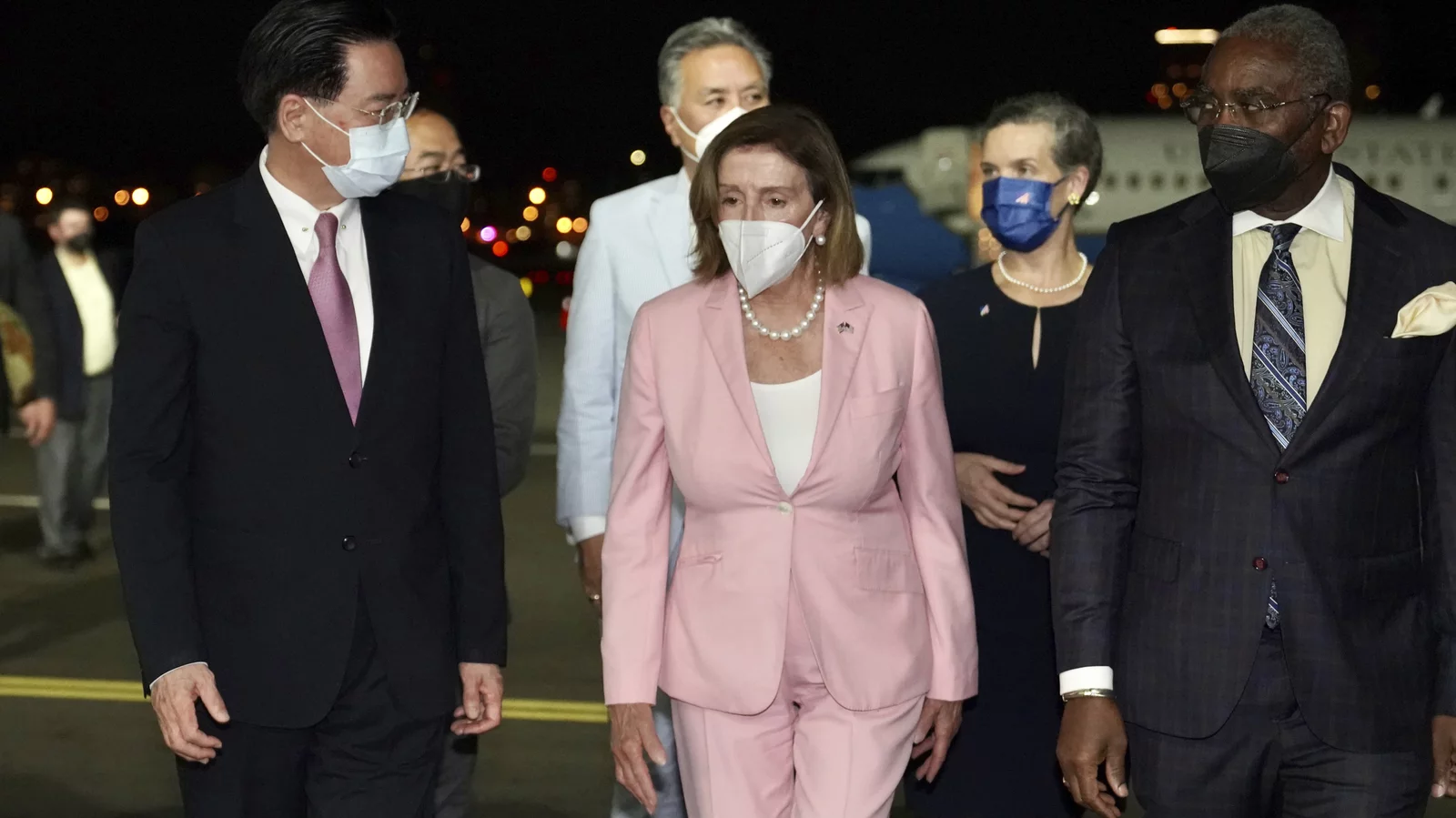Taiwanese President’s Arrival on US Soil Raises Concerns of Potential Chinese Backlash
Taiwan President Tsai Ing-wen speaks during a news conference in Taipei, Taiwan on Jan. 27, 2023. Source: CARLOS GARCIA RAWLINS / REUTERS
President Tsai Ing-wen confirmed this Tuesday that she plans to make an unofficial visit to the United States while traveling to Central America.
She is expected to make a stop in New York on March 30, 2023, while on the way to Central America, and a stop in Los Angeles on April 3, 2023, on the way back to Taiwan.
It is expected that Speaker Kevin McCarthy will be meeting the Taiwanese president in Los Angeles when she visits. President Ing-wen suggested LA be a better location to meet and avoid an international confrontation from China.
It is not unusual for presidents of other nations to transit the United States or make unofficial visits. However, Taiwan’s particular status as a disputed region of the People’s Republic of China is likely to cause a widened rift between Beijing and Washington.
Taiwan and China have a precarious history. Once part of China, Taiwan stands as an independent nation struggling to expand foreign relations with countries already in partnership with China. Under the communist regime, the Chinese government aims to reunite Taiwan with mainland China. While Taiwan resists the Chinese government, it still considers China as its own territory under its constitution which it cannot modify due to fear of Chinese retribution.
Since President Ing-wen’s announcement, Taiwan is prepared for backlash from China. According to deputy defense minister Po Horng-huei, Taiwan’s defense ministry has contingency plans in case China makes similar moves like those during Pelosi’s visit.
To further reduce any future tension and make light of the situation, White House National Security Council spokesman John Kirby responded to AP News stating, “There’s no reason for China to overreact. Heck, there’s no reason for China to react.”
The US does not have official connections with Taiwan due to its relationship with China, and does not recognize its sovereignty. Nevertheless, the US’ past ties and informal connections with the ROC government has caused persistent issues between Chinese and American officials.
Pelosi arriving in Taipei on Aug. 22, 2022, accompanied by Taiwan's Foreign Minister Joseph Wu. Source: Taiwan Ministry of Foreign Affairs via AP
Last August, House Speaker Nancy Pelosi took a trip to Taipei, Taiwan’s capital in hopes of initiating a relationship with the island. Pelosi has perpetually vocalized her stance on China and has repeatedly insisted that the US consider the human rights crimes committed by China when reevaluating its relationship with the East Asian nation.
News of Pelosi’s travel became public and she was advised not to make the trip. President Joe Biden admitted that the US military was against Pelosi’s plans since her trip to Taiwan would cause conflict—specifically during the time when the Chinese communist party won the elections.
China itself gave an opinion on the matter, releasing a statement stating that it would take “resolute and forceful measures” if Pelosi’s intentions were to manifest themselves into reality.
In over 25 years, no high-ranking member of the US government had set foot in Taiwan, and this incident came with repercussions.
China responded aggressively to Pelosi’s visit by launching missiles over Taiwan, deploying warships and carrying out military exercises near the country. Its actions were a loud and clear message to the US.
In addition, China blocked thousands of food imports from Taiwan and the Taiwanese government and faced cyberattacks allegedly originating from China.
Earlier this month, China offered Taiwan a “peaceful reunification.” President Ing-wen declined the proposal and demanded China respect Taiwan’s liberty and democracy.
To preserve their relationship with China, the US cannot intervene in affairs between China and Taiwan. China is the most significant trade partner for the US, making it difficult for the US to sever ties with the nation.
In an effort to remain neutral and decrease potential backlash from the Chinese government, the Biden administration pointed out that there have been standard unofficial visits by the Taiwanese president over the years.
The 1979 Taiwan Relations Act makes it impossible for the US military to intervene if China launches an attack on Taiwan. However, the US has the liberty of providing Taiwan with weapons and aid.


